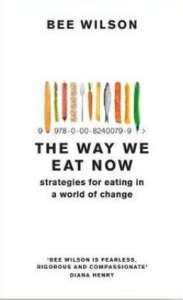
Snacking and binging with so many superfoods


The Way We Eat Now is an essential reading for all, as this books scans through climate change, shrinking biodiversity, the global rise of agro-industrial food complex and our nutrition and eating habits evolving around diet.
The French invented lean cuisine. But now a push for quantity over quality in our food systems and the chemical farming is destroying our environment and highly processed foods are making us fat and has jeopardised our health.
Bee Wilson exposes our changing food culture even citing compelling description of the economic, political and emotional issues around our food.
From time in memorial humans once hunted and gathered then we sowed cereals, and we discovered crops and spices.
After privatisations of the Second World war new breeds of cereals have emerged alongside chemical fertilisers and pesticides in a bid to improve yield.
This choice of quantity over quality has created what she described as “a hollow kind of abundance”. Hunger has been replaced by chronic illness. For the first time the number of overweight and obese people in the world overtook the number who were underfed.”
Wilson blames Multinationals subsidies and trade agreements which created a worldwide food system that concentrates on larger and larger agglomerations of monocultures.
She highlights how cheap snacks like soda have penetrated even the most diverse food cultures such as India and China. Workers feeding frozen nuggets to their children, and the insidious effect of manipulating marketing campaigns promoting highly processed cheap foods as healthy options or targeting children to sell sugar-laden breakfast cereals.
Processed and packaged food is cheap and convenient, lack of time hovers over most of our modern food habits and the rise of fast food, vending machines, takeaways and online delivery services all encourage a food culture of constant instant gratification.
People snack all day and increasingly eat alone on the run at their desks.
The old family tradition of supper time around the table have virtually disappeared with TV or mobile phones taking priority. People are increasingly anxious eating faddy diets, fasting , detox obsessed with calories, carbs and food intolerances while trying to weigh up the environmental impact and ethics of free range chicken.
The real change cannot be effected without a serious shift in government policy and an economic re-accounting. The effects of school meal programmes, pilot projects for getting fresh vegetables and fruits into urban food deserts sugar taxes should effectively change society’s habits and behaviours.
The Way We Eat Now: Strategies for eating in a world of change by Bee Wilson, Fourth Estate £12.99, 392 pages.
